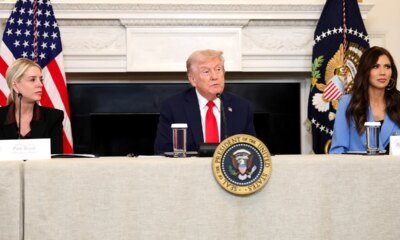INTERNACIONAL
Trump’s peace deal could end the war in Gaza or Netanyahu’s career
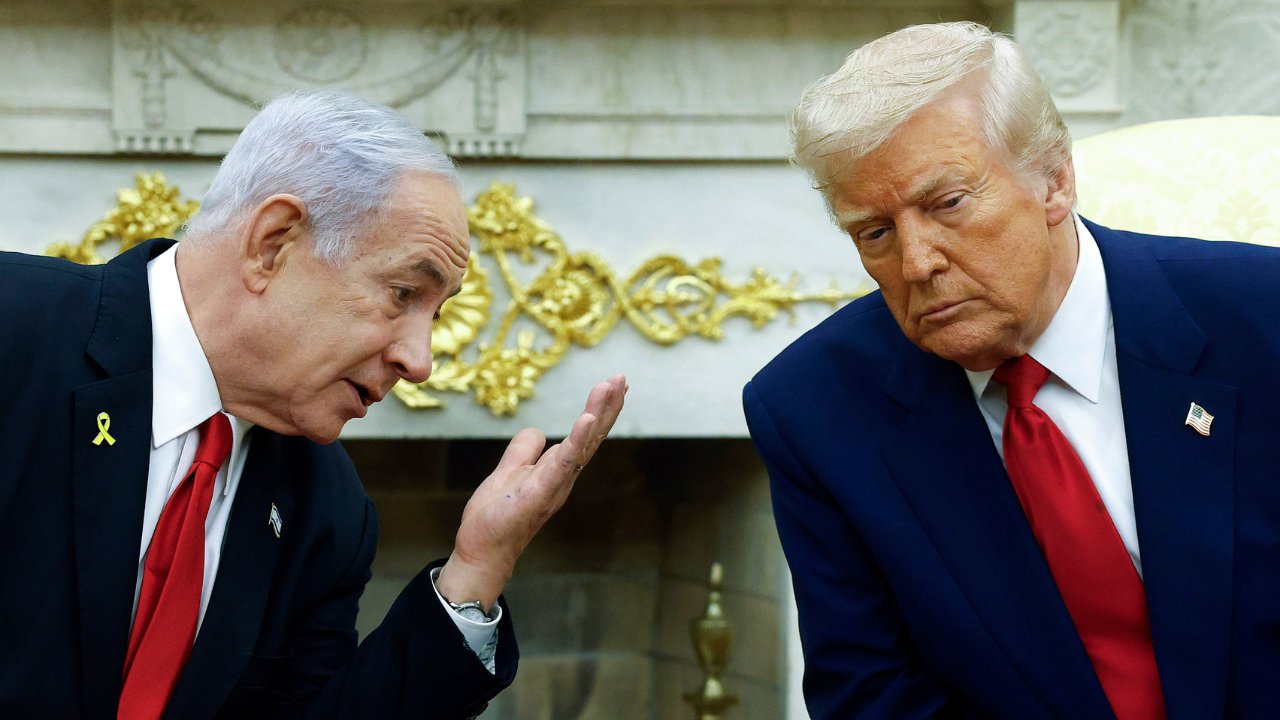
NEWYou can now listen to Fox News articles!
A 20-point peace plan proposed by President Donald Trump this week could finally conclude the nearly two-year war in the Gaza Strip and see the return of the 46 hostages still held by Hamas. But it could also mean an end to Prime Minister Benjamin Netanyahu’s time in the Israeli government’s top job.
Hamas still needs to agree to the plan that Netanyahu accepted on Monday, which would ultimately end Israel’s military operation, disarm Hamas and pave the way for the reconstruction of the Gaza Strip under a Palestinian governing body overseen by an international coalition headed by Trump.
Trump said this could be the Israeli prime minister’s «crowning achievement,» but Netanyahu’s acceptance of the plan could ultimately determine whether his government collapses or finds renewed support.
TRUMP UNVEILS 20-POINT PLAN TO SECURE PEACE IN GAZA, INCLUDING GRANTING SOME HAMAS MEMBERS ‘AMNESTY’
Israeli Prime Minister Benjamin Netanyahu talks to U.S. President Donald Trump during a meeting in the Oval Office of the White House on April 7, 2025, in Washington, D.C. (Kevin Dietsch/Getty Images)
In June, Netanyahu’s right-wing coalition narrowly survived a push for early elections, which could have led to the dissolution of his government and advanced an election set for October 2026.
But by July, his government lost the majority in the Israeli parliament after two of its parties withdrew from his coalition and left him in control of just 50 of the 120 seats, which could pose a significant threat should a push for early elections be attempted again.
Netanyahu’s party has continued to grow increasingly fractious, with hard-right members of his party threatening to bring down his government over any concessions made in the war against Hamas.
«They thought they were headed toward ‘total victory’ on the battlefield, a full-blown Israeli military occupation, the displacement of millions of Palestinians to the far reaches of the globe, and eventual Israeli resettlement and annexation of Gaza,» security expert and Randi & Charles Wax senior fellow at the Jewish Institute for National Security of America, John Hannah, told Fox News Digital.
«This new Trump plan runs contrary to all their end-game objectives — even if, at least on paper, it does promise to meet a lot of Israel’s core war aims in terms of returning all the hostages, disarming Hamas and ending its rule, and thoroughly demilitarizing and deradicalizing Gaza,» he added.
National Security Minister Itamar Ben-Gvir — who resigned in early 2025 over his opposition to the ceasefire and hostage deal that saw the release of 33 hostages before he was reinstated in March — has made clear his desire to see the annexation of Gaza with Israeli settlements moving in, and the complete elimination of Hamas.
Trump’s proposal, though it does not specifically pave a path for Palestinian statehood, does block Israeli annexation plans and would grant Hamas «amnesty» and a path out of Gaza if they disarm.
On Tuesday, Finance Minister Bezalel Smotrich condemned Trump’s plan as a «resounding diplomatic failure» and said it amounted to «a closing of eyes and turning our backs on all the lessons of October 7th.»
NETANYAHU APOLOGIZED FOR AIRSTRIKES DURING ‘HEART-TO-HEART’ WITH QATARI LEADER, TRUMP SAYS

Israeli Prime Minister Benjamin Netanyahu meets with IDF commanders in the Netzarim Corridor in Gaza to discuss Hamas activity on Nov. 19, 2024. (Photo provided by TPS)
«In my estimation, it will end in tears,» he said in a post in X. «A tragedy of leadership fleeing from the truth.»
While Netanyahu faces immense pressure within his own party among those who believe he has conceded security demands, he also faces immense opposition among the public.
His inability to secure a hostage deal and his continued aggressive military operations in Gaza have prompted many Israelis to question whether Netanyahu has prioritized military operations, and perhaps his political ambitions, over the return of the hostages who have been held for 725 days.
Hannah pointed out that it would have been «disastrous» for Netanyahu not to accept Trump’s plan, given Israel’s growing isolationism on the global stage, but also amid rocky politics at home.
«It’s absolutely imperative for Israel’s long-term security and, frankly, for Netanyahu’s political future to keep the U.S. and Trump on side,» he said, noting that Trump enjoys more popularity among Israelis than Netanyahu does.
Approval ratings have repeatedly shown Netanyahu would be unlikely to survive an election were it to happen in the immediate term.
«If you think predicting American elections is hard, you can’t even imagine predicting Israeli elections given its multi-party parliamentary system,» Richard Goldberg, senior advisor with the Foundation for Defense of Democracies told Fox News Digital. «In the end, President Trump and Prime Minister Netanyahu appear more focused on substance than politics, with a deal that would get all the hostages out, force Hamas to surrender and protect Israel’s long-term security.»
It is unclear how public opinion of Netanyahu could be reshaped by his acceptance of Trump’s plan, particularly if Hamas also agrees to it and the hostages could be returned within 72-hours, as is stipulated under the proposal following a joint agreement.
Netanyahu’s chief opposition and former prime minister, Yair Lapid, said the number one threat facing the success of the plan is a «yes, but» approach.

Protesters hold photos of hostages as they march during a rally calling for the Israeli government to sign a deal to release hostages held in the Gaza Strip on Aug. 26, 2025, in Tel Aviv, Israel. (Amir Levy/Getty Images)
CLICK HERE TO GET THE FOX NEWS APP
«What threatens the plan now is not the people who say ‘no,’ like Ben-Gvir or the Iranians, but the people who say ‘yes, but’,» he said on X. «Netanyahu is a seasoned and exhausting expert in ‘yes, but.’ Usually, he says the ‘yes’ in Washington, standing in front of cameras at the White House, feeling like a groundbreaking statesman, and the ‘but’ when he returns home and the ‘base’ reminds him who’s boss.»
Other opposition leaders backed Netanyahu’s agreement to the plan, including leader of the Blue and White Party, Benny Gantz, who said his party «would not allow petty politics to sabotage the plan.»
While it is unclear how Israel will respond to Netanyahu should a deal be reached, Goldberg argued that ultimately the deal is a win for Israel.
«The devil is always in the details, and we are short on details, but from a principles perspective, this would be a clear Israeli victory,» Goldberg said. «When you add on the requirements for demilitarization and deradicalization in Gaza and a fundamental overhaul of the Palestinian Authority, alongside a path to Saudi-Israel normalization, all the topline principles and goals align with Israel’s security interests and war objectives.»
benjamin netanyahu,israel,donald trump,middle east,world,terrorism
INTERNACIONAL
Top Republican slams Katherine Clark for admitting suffering families are ‘leverage’ in shutdown battle
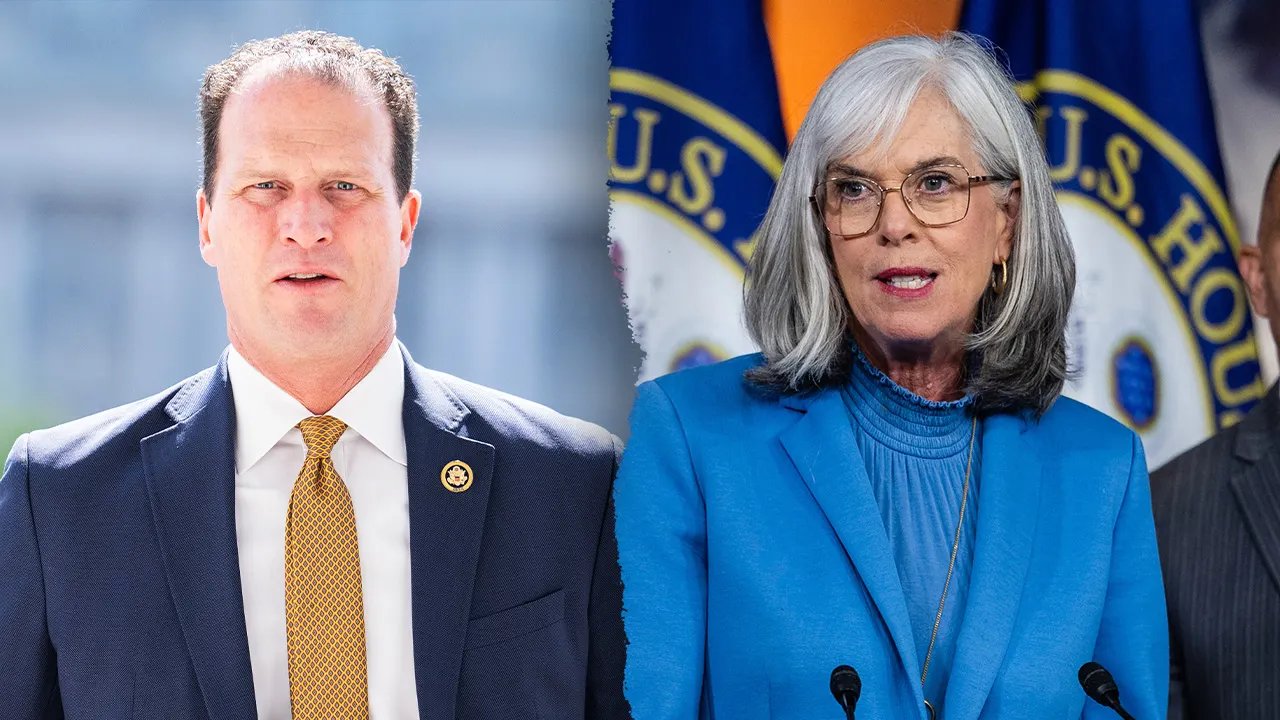
NEWYou can now listen to Fox News articles!
EXCLUSIVE: A top House Republican is criticizing one of Democrats’ senior leaders for saying the government shutdown and its effects are a «leverage point» to accomplish their goals on healthcare.
«It’s appalling to see the number two House Democrat openly admit that the left is weaponizing hardworking Americans as ‘leverage’ for political gain, even acknowledging families will suffer in the process,» Republican Study Committee Chair August Pfluger, R-Texas, told Fox News Digital.
«This isn’t governance — it’s calculated hostage-taking, with struggling families caught in the balance as Democrats attempt to force through their radical agenda. Families are seen only as leverage by Democrats. We always knew it, now they’re saying it out loud. Absolutely shameful.»
House Minority Whip Katherine Clark, D-Mass., sat down for an interview with Fox News’ Chad Pergram last week. At one point, Clark was asked about who Americans would find responsible for the ongoing shutdown.
BATTLEGROUND REPUBLICANS HOLD THE LINE AS JOHNSON PRESSURES DEMS ON SHUTDOWN
Republican Study Committee Chairman August Pfluger is criticizing House Minority Whip Katherine Clark’s comments in a recent interview on the government shutdown. (Tom Williams/CQ-Roll Call, Inc via Getty Images; Eric Lee/Bloomberg via Getty Images)
«I mean, shutdowns are terrible and, of course, there will be, you know, families that are going to suffer. We take that responsibility very seriously. But it is one of the few leverage times we have,» Clark responded.
«It is an inflection point in this budget process where we have tried to get the Republicans to meet with us and prioritize the American people, and it’s been an absolute refusal, and they were willing to let government shut down when they control the House, the Senate and the White House rather than come and talk about an issue as important to the American people is if they can afford healthcare.»
Fox News Digital reached out to Clark’s office for a response to Pfluger’s comments.
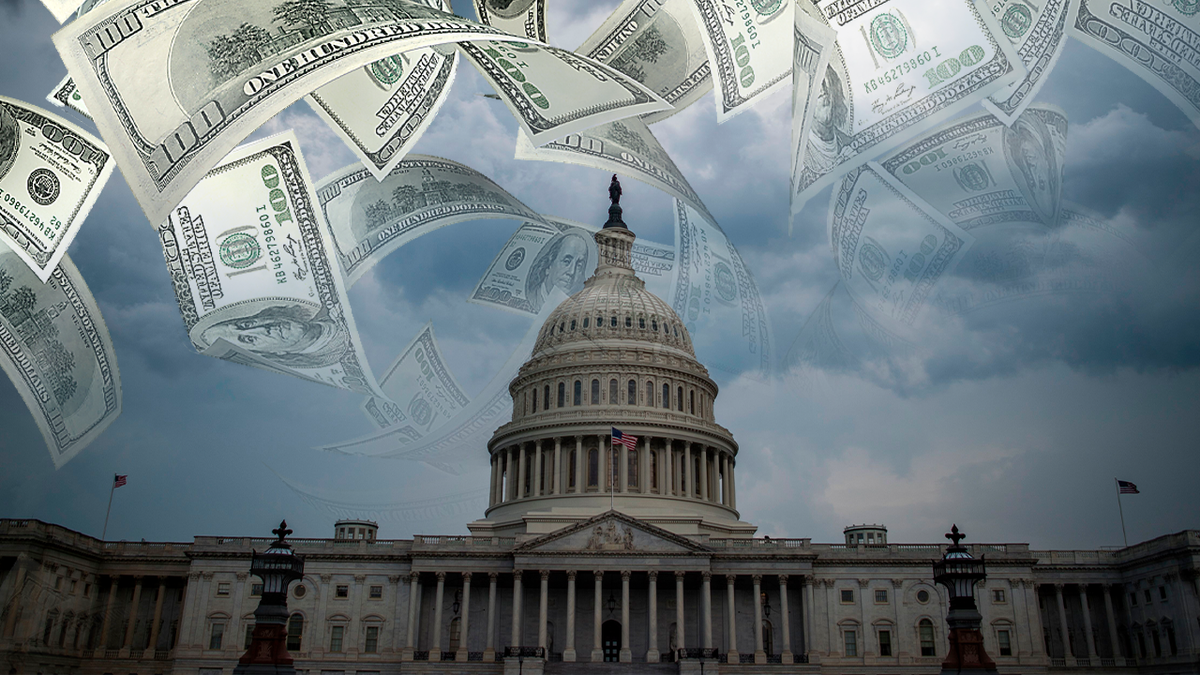
The government is in a shutdown after Congress failed to reach an agreement on federal funding. (Getty Images)
The government shutdown is now in its 23rd day after Senate Democrats rejected the GOP’s federal funding bill for a 12th time on Wednesday evening.
Republicans proposed a measure that would keep federal funding roughly flat until Nov. 21, a spending patch called a continuing resolution (CR), so that negotiators would have more time to strike a longer-term deal on fiscal year (FY) 2026.
The bill passed the House largely along partisan lines on Sept. 19.
But Democrats have been pushing for any funding deal to include an extension of Obamacare subsidies that were enhanced during the COVID-19 pandemic. Those enhancements are set to expire at the end of 2025.
Republican leaders have signaled a willingness to negotiate on those subsidies, but have ruled out doing so in the current package.
SCREAMING MATCH ERUPTS BETWEEN HAKEEM JEFFRIES, MIKE LAWLER AS GOVERNMENT SHUTDOWN CHAOS CONTINUES

Speaker of the House Mike Johnson speaks during a news conference at the U.S. Capitol on the 10th day of the federal government shutdown in Washington, Oct. 10, 2025. (Alex Wroblewski/AFP via Getty Images)
CLICK HERE TO GET THE FOX NEWS APP
«Mike Johnson said, we have an eternity to talk about this, an eternity. This impact of the ACA is in the next few weeks,» Clark said. «Yes, there are repercussions to a shutdown that are terrible for people.»
She continued, «I feel for military families that even if they get paid, you know, there are lots of spouses that also work that are feeling these cuts because we’ve encouraged military spouses to become federal workers to accommodate all the travel and moving that military families so frequently experience. And now we’re saying to them, you’re not going to be paid for your work. I mean, let’s get it together here. The Republicans need to come to town. They need to sit down with us.»
Republicans have seized on Clark’s comments in recent days, however.
House GOP Chairwoman Lisa McClain, R-Mich., said in a statement on Wednesday, «Democrats are holding American families hostage to advance their political agenda, and they’re admitting it.»
house of representatives politics,politics,republicans,government shutdown
INTERNACIONAL
Los submarinos que contrabandean cocaína a través de océanos y mares

Transporte
Amenaza
INTERNACIONAL
Louvre director grilled on spectacular security failures, including camera pointing away from key balcony

NEWYou can now listen to Fox News articles!
The director of Paris’ iconic Louvre Museum is facing scrutiny over apparent security failures that allowed thieves to make off with more than $100 million worth of jewels.
In her first public address since the heist, Louvre Museum director Laurence des Cars acknowledged there was a «terrible failure» and said, «Despite our efforts, despite our hard work on a daily basis, we failed,» The Guardian reported.
Des Cars admitted that security around the Louvre’s perimeter was an issue and that the only camera monitoring the outside of the museum was facing away from the balcony that led to the gallery where the precious jewels were kept, according to reports. The Guardian also noted that des Cars confirmed all the museum’s alarms were functioning during the burglary.
LOUVRE HEIST ADDS TO HISTORY OF HIGH-PROFILE MUSEUM BREACHES, LEAVES OTHER GALLERIES ON EDGE
Louvre Museum director Laurence des Cars made her first public remarks since the recent jewelry heist at a press conference on Oct. 22, 2025, in Paris, France. (Edward Berthelot/Getty Images)
«We failed these jewels,» des Cars said, according to the BBC. The outlet also quoted the director as saying that no one is safe from «brutal thieves — not even the Louvre.»
On Sunday, burglars appeared to use a truck-mounted electric furniture lift to conduct the heist, Laure Beccuau, the Paris prosecutor, said in an interview with RTL radio, according to The New York Times. She added that the thieves obtained the lift by pretending it was for a move. Additionally, Beccuau noted that it would not be easy for burglars to sell the stolen jewels for what they’re worth if they tear the pieces apart or melt them, according to the Times.

Police secure the area outside the Louvre Museum in Paris, where burglars used a truck-mounted moving lift to reach a second floor window and steal royal jewelry valued at more than $100 million. (Dimitar DILKOFF / AFP)
HOW LOUVRE BURGLARS OBTAINED TRUCK-MOUNTED LIFT TO MAKE OFF WITH JEWELS WORTH MORE THAN $100M
The thieves got away with a total of eight objects, including a sapphire diadem, necklace and single earring from a set linked to 19th-century queens Marie-Amélie and Hortense. They also stole an emerald necklace and earrings tied to Empress Marie-Louise, Napoleon Bonaparte’s second wife, and a reliquary brooch. Empress Eugénie’s diamond diadem and her large corsage-bow brooch — an imperial ensemble of rare craftsmanship — were also part of the loot.
«The theft committed at the Louvre is an attack on a heritage that we cherish, for it is our history,» French President Emmanuel Macron said in an X post on Sunday. «We will recover the works, and the perpetrators will be brought to justice. Everything is being done, everywhere, to achieve this, under the leadership of the Paris prosecutor’s office.»
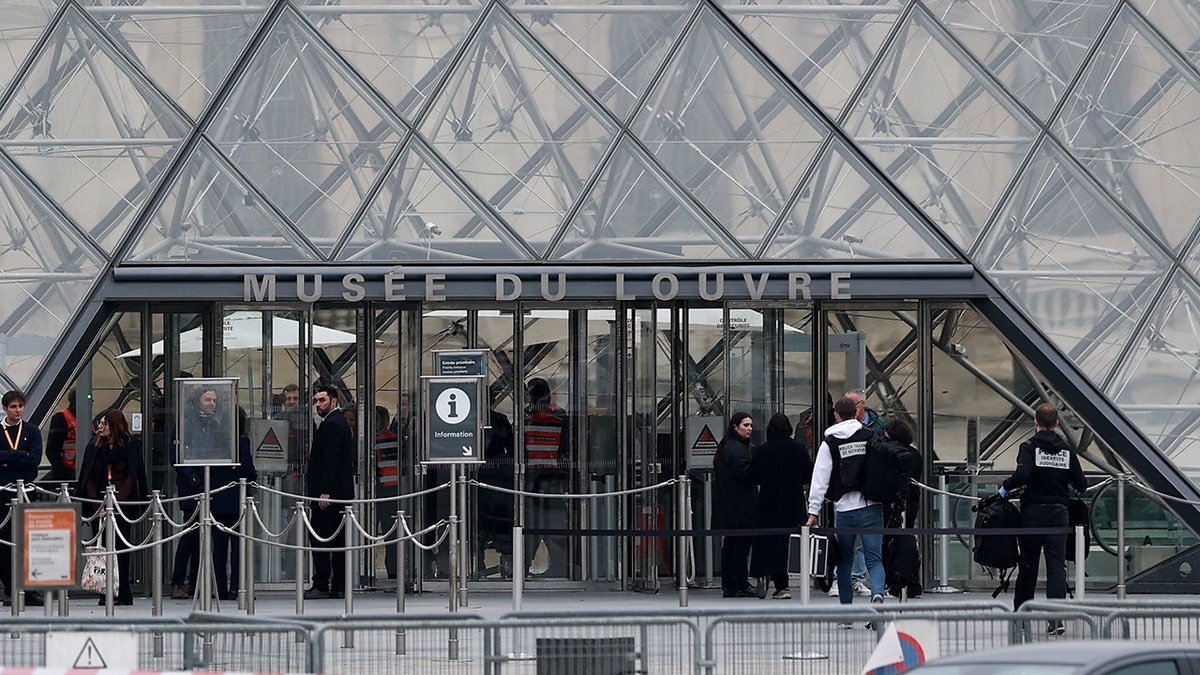
Forensic police officers arrive at the Louvre Museum after reports of a robbery in Paris, France, on Oct. 19, 2025. (Gonzalo Fuentes/Reuters)
CLICK HERE TO DOWNLOAD THE FOX NEWS APP
The heist has prompted a national reckoning, with some officials comparing the shock to the 2019 burning of Notre Dame cathedral. Beccuau told RTL radio that the team investigating the heist had grown from 60 investigators to 100, underscoring the importance of the case on national and international levels.
Fox News Digital’s Michael Dorgan contributed to this report.
crime,france,emmanuel macron,museums exhibits

 DEPORTE24 horas ago
DEPORTE24 horas agoUniversidad de Chile vs. Lanús, por la Copa Sudamericana: día, horario y cómo verlo por TV

 CHIMENTOS3 días ago
CHIMENTOS3 días agoLa conductora y el periodista de C5N que festejaron el día de la madre anunciado su embarazo: «Mejor que dos son tres»

 ECONOMIA2 días ago
ECONOMIA2 días agoScott Bessent oficializó el swap con la Argentina y afirmó: “No queremos otro Estado fallido en América Latina”



